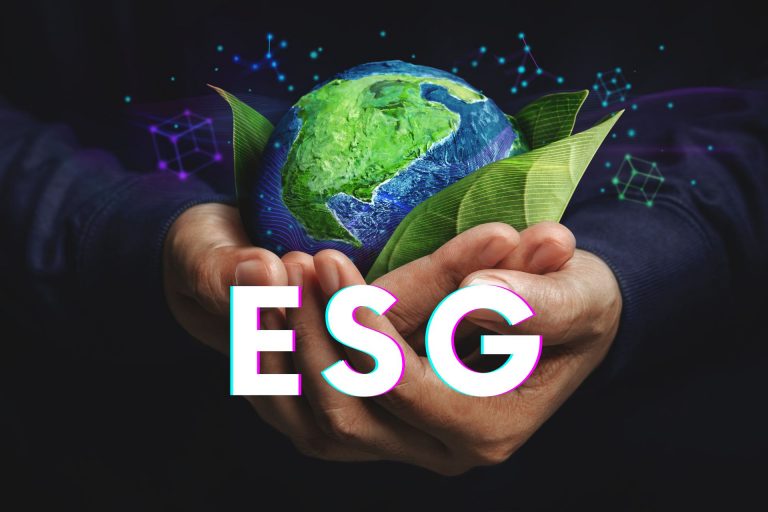Earning an ESG rating for your business demonstrates your company’s commitment to environmental and sustainability goals. An ESG rating can enhance your reputation, create savings, and help secure business. You might secure a contract with a company with a zero-emissions target, or you might save money through greater energy efficiency or a reduction in waste. In a tight job market, having positive ESG strategies might also help attract and retain staff.
There are a number of organisations that assess businesses according to sustainability standards, the key to choosing the most appropriate sustainability rating system for your business is understanding what your stakeholders value and what issues are important to them.
For example, you may have potential customers who rely on the Sedex Advance database to evaluate the ethical and responsible practices of suppliers. Or you may see benefits in joining the global network of more than 90,000 companies with an EcoVadis rating.
What exactly is ESG reporting?
ESG stands for Environmental, Social and Governance, the three factors used for measuring the sustainability and ethical impact of a business. ESG reporting means disclosing how your business performs in relation to ESG risks and opportunities.
Committing to ESG means embedding ESG into your core business planning and integrating ESG strategies into your policies and processes.
If your business has ISO-certified Environmental Management, Quality Management, and OH&S systems you are well positioned for meeting the requirements for obtaining an ESG rating.
Is ESG reporting mandatory?
In Australia, ESG reporting is mandatory for public companies and many private companies are choosing to incorporate ESG strategies into their business plans to satisfy their public company customers’ reporting requirements, or to simply demonstrate their environmental and social consciousness to their stakeholders.
While ESG reporting is voluntary for privately-owned small-to-medium enterprises, increasingly stakeholders are expecting businesses to disclose their environmental and social credentials, and customers are choosing to support businesses that share their environmental and social priorities. Put simply, people want to know that businesses are taking steps to reduce their environmental impact and to treat their workers well.
Reducing environmental impacts
To earn an ESG rating for your business you will need to demonstrate how you mitigate environmental risks and embrace opportunities to enhance the environment. Throughout your business, you need to address the environmental sustainability goals of:
- Preventing pollution
- Conserving resources (reuse, recycle)
- Eliminating waste (responsible consumption and waste management)
- Mitigating carbon emissions (reducing carbon footprint, zero emissions)
Demonstrating ethical social practices
In terms of the social aspects of ESG, businesses need to implement policies and procedures to ensure the ethical treatment of employees, contractors, customers, and other stakeholders. This means addressing the social sustainability goals of:
- Ensuring diversity, equity, and inclusion
- Providing data security and privacy
- Enforcing appropriate labour standards
- Providing fair and equitable pay
- Recognising human rights
- Providing training and development for employees
- Maintaining a safe and healthy workplace
- Supporting employee engagement
- Offering consumer protections
Ethical supply chain practices
Another key social aspect of ESG is having ethical supply chain practices. Businesses need to have processes in place to ensure their suppliers are meeting appropriate environmental and ethical standards, including supporting human rights, meeting WHS standards, and providing proper remuneration.
Even within our own borders, there have been instances of debt bondage, deceptive recruiting, and slavery like practices. For larger companies, (ie with annual revenue of >$100m) modern slavery reporting is mandatory in Australia. All businesses should review their supply chains and operations to identify and address exploitation.
Integrating ESG into your small business
Do you want to demonstrate your sustainability credentials to your stakeholders, but don’t have the resources to make it happen? This is where Carix business advisors can assist.
We can work with you to understand what your stakeholders value and what issues are important to them, and help you align your business strategy to addressing these issues.
We will work closely with you to develop your ESG strategy and embed it in your business systems and processes, so you can effectively review and report on your ESG strategies.
We are a hands-on business advisory that has supported numerous SMEs with gaining Quality, Environmental, and OHS Certification, FSC Chain-of-Custody Certification, and demonstrating ESG through Sedex, EcoVadis, and BCorp.
We take the following steps to assist SMEs in achieving certification:
- Collecting existing paperwork and digital documentation
- Conducting gap analyses
- Working with clients to develop SMART goals for ESG
- Developing policies and documenting procedures
- Reviewing audit- or assessment-readiness
- Supporting clients during the audit/assessment
- Helping respond to corrective actions
Contact Carix to discuss how your business can benefit from obtaining an ESG rating.




